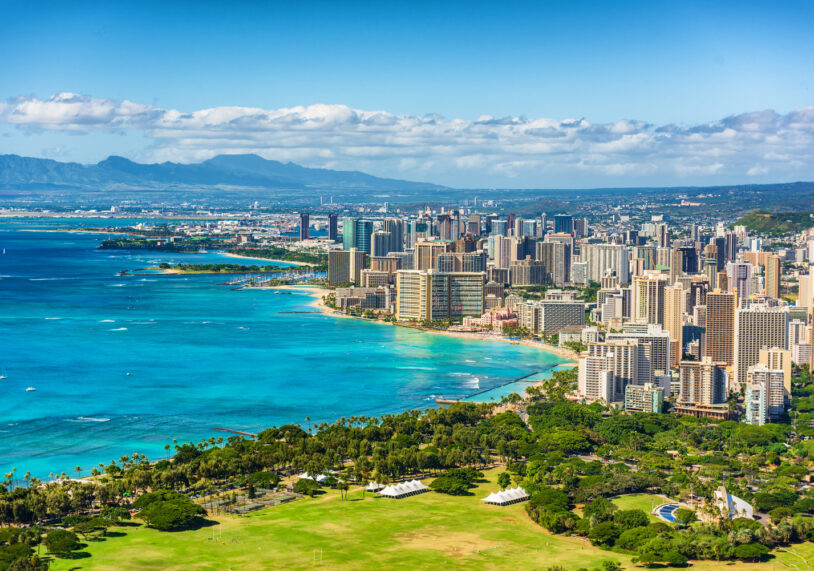Living the Aloha Life: Relocation Tips for Household Staff Moving to Hawaii

Moving to Hawaii for a job is a dream come true for many, an opportunity to live in paradise, surrounded by stunning landscapes, vibrant culture, and a relaxed way of life. For household staff moving to Hawaii, however, the relocation process can feel overwhelming. From navigating logistics to adapting to a new environment, there are several factors to consider to ensure a smooth and successful transition.
If you’re planning to relocate to Hawaii to work as household staff, this guide will provide you with practical tips to help you prepare for this exciting adventure. Whether you’re moving to care for a private estate, work as a personal assistant, or assist with housekeeping or grounds maintenance, these tips will help you feel more at home in your new island environment.
1. Understand Hawaii’s Cost of Living
One of the first things to consider when moving to Hawaii is the cost of living. Hawaii is known for having a high cost of living compared to the mainland, with prices for groceries, housing, and services often significantly higher than in other states. As a household staff member, your salary might not fully cover these higher expenses, so it’s important to plan accordingly.
Here are a few things to consider:
- Housing: Depending on your arrangement with your employer, you may live on the property or have to find your own accommodation. If you need to rent, be prepared for higher rent prices, particularly in popular areas like Honolulu or Maui.
- Groceries: Imported goods can be expensive, and many items are sourced from the mainland or overseas. Familiarize yourself with local markets and shop at places like farmer’s markets for fresh produce, as well as stores that cater to locals.
- Transportation: If you’re not living on-site, you may need a car. Keep in mind that gas prices in Hawaii can be high, and public transportation is limited outside of major cities.
2. Find Housing That Works for Your Needs
Whether you’ll be living on the property or renting elsewhere, securing housing is a critical part of your relocation. If your employer offers you accommodation, be sure to discuss the details upfront. Some employers provide staff housing on the property, while others may offer assistance with renting nearby.
If you’re looking for a rental:
- Location: Consider where you’ll be working and how far your commute will be. Some areas may have limited housing options, so it’s important to act quickly when you find something that suits your needs.
- Size and Amenities: Rental units in Hawaii may be smaller than what you’re used to, so be prepared to adjust. Many rentals in Hawaii also come unfurnished, so plan for furniture and household items.
3. Adjust to the Local Climate and Environment
Hawaii’s tropical climate is one of its biggest draws, but it’s also something that staff relocating to the islands must adapt to. The weather is warm year-round, with temperatures typically ranging between 70°F and 85°F, but different islands can have varying microclimates.
Here’s how to adjust:
- Stay Cool: Even though it’s warm year-round, Hawaii also experiences cooling trade winds that can provide relief. Air conditioning is not always necessary, but if you’re moving to a hotter area like Kona or the leeward side of Oahu, you may want to ensure your accommodation is equipped with fans or AC.
- Rain and Humidity: The islands receive varying amounts of rain, particularly in tropical areas like Hilo or Kauai. Be prepared for humidity, and adjust your wardrobe accordingly. Lightweight, breathable clothing will help keep you comfortable.
4. Familiarize Yourself with Hawaii’s Culture and Etiquette
Hawaiian culture is deeply rooted in respect, family, and tradition, and it’s important for household staff to understand local values and etiquette. The spirit of Aloha, love, kindness, and compassion, is central to daily life in Hawaii, and embracing this mindset will help you feel more connected to the local community.
Here are a few things to keep in mind:
- Aloha Spirit: Greet people with warmth and friendliness. Saying “Aloha” when you meet or leave someone is a common practice, and it goes beyond just a greeting, it’s a way of life that emphasizes mutual respect and kindness.
- Punctuality: While Hawaiian culture is laid-back, punctuality is still important, especially for professional settings. Make sure you arrive on time for work and appointments.
- Respect for Nature: Hawaiians have a deep respect for the land, known as “Āina,” and the sea. When you’re out exploring or working on a property, always be mindful of the environment and local customs regarding natural resources and sacred spaces.
5. Understand Hawaii’s Health and Safety Regulations
Hawaii has its own set of health and safety guidelines, especially when it comes to food preparation, landscaping, and outdoor work. Familiarizing yourself with the Department of Health (DOH) regulations for things like pest control, food safety, and water use will help you stay compliant and ensure a safe work environment.
- Pest Control: Due to Hawaii’s tropical climate, pests like ants, cockroaches, and mosquitoes are common. Staff should be trained in keeping homes and properties clean and pest-free.
- Health Insurance: Be sure to understand your health insurance options, as Hawaii has its own laws regarding health coverage. If your employer doesn’t provide coverage, you may need to secure it independently.
6. Get to Know the Local Community and Services
Hawaii is a diverse and welcoming place, but adjusting to a new culture takes time. Finding local services, building a network of friends, and understanding island life will help you settle in.
- Building Relationships: Hawaii has a strong sense of “ʻOhana” (family), and people value close-knit relationships. Take time to get to know your neighbors, coworkers, and the people in your community.
- Local Services: Familiarize yourself with the nearest grocery stores, hospitals, and recreational spots. Knowing where to find everyday essentials will make your transition easier.
7. Transportation and Travel Considerations
While Hawaii offers stunning landscapes and wonderful travel opportunities, getting around can be different than on the mainland. Many areas of Hawaii, especially on smaller islands, may not have extensive public transportation systems.
- Car Rentals or Ownership: If you don’t live on-site, you may need to rent or buy a car to get around. Look into local car rental companies or used car dealers for options.
- Inter-Island Travel: If your work involves traveling between islands, familiarize yourself with inter-island flights and ferries. The cost and convenience of these trips can vary, so it’s best to plan ahead.
8. Embrace Island Time
In Hawaii, life moves at a slower pace, often referred to as “island time.” While this can be a welcome change from the hustle and bustle of mainland life, it also means that things may take a little longer to get done.
- Be Patient: Whether it’s waiting for a delivery or coordinating with local businesses, it’s important to go with the flow and be patient. Understanding the relaxed pace of life will help you avoid frustration and enjoy the slower rhythm of island living.
Relocating to Hawaii to work as household staff is an exciting opportunity, but it comes with its own unique challenges and adjustments. By understanding the local culture, preparing for the cost of living, adapting to the climate, and embracing the island lifestyle, you’ll be able to transition smoothly and create a fulfilling life in paradise.
Whether you’re moving to care for a family estate, assist with personal duties, or manage a property, these relocation tips will help you settle into your new role and enjoy everything that Hawaii has to offer. A little preparation goes a long way, so get ready to embrace island life and the wonderful experiences it brings!
Ready to Find Your Perfect Staff?
Contact A Perfect Fit Household Staffing Agency today and take the first step towards transforming your household staffing experience.







